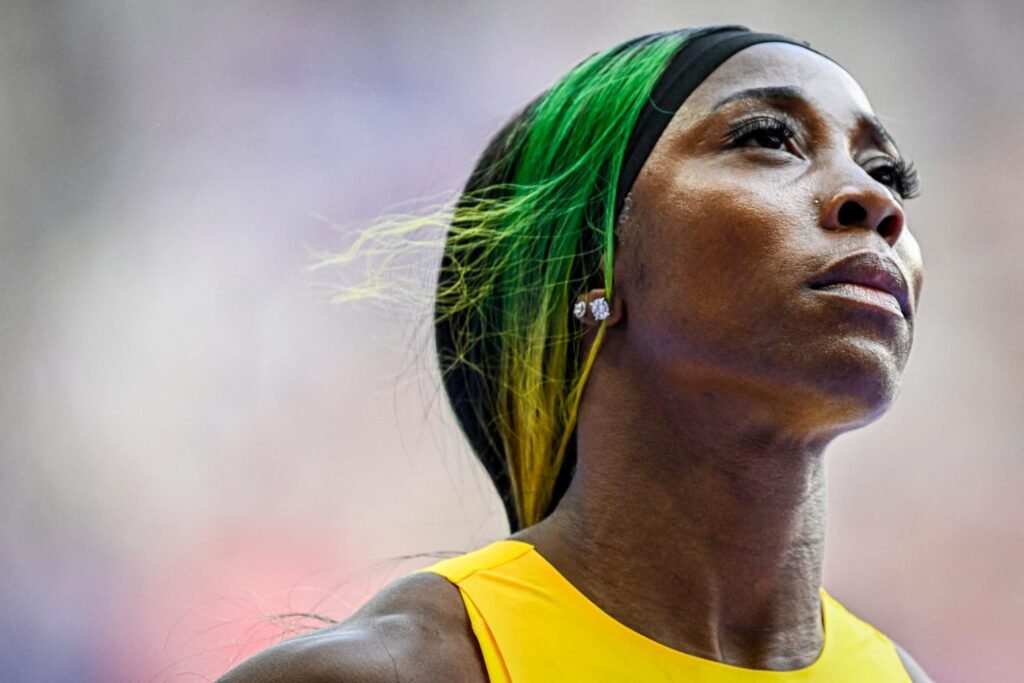
When Jamaica’s Pocket Rocket, Shelly-Ann Fraser-Pryce, pulled out of the Paris 2024 Olympics, the silence was deafening. There was no official announcement, no injury report that made sense. Just an empty lane in the semi-finals—and questions that lingered like a fog over the stadium.
Now, for the first time, Fraser-Pryce has broken her silence in the July 2024 cover story of Marie Claire’s Women in Sports issue. In a candid, deeply personal interview, she reveals what really happened in Paris—and why she chose to step away from the most anticipated race of her life.
“It wasn’t injury. It wasn’t fear. It was a decision that came from protecting my peace.”
And with those words, Shelly-Ann rewrote the narrative of what it means to walk away—not in defeat, but in full command of her own legacy.
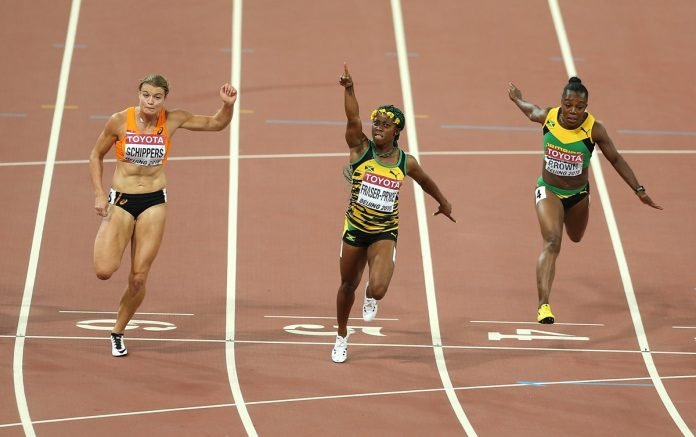
From Waterhouse to World History
Fraser-Pryce’s story has never followed convention. She grew up in the gritty neighborhood of Waterhouse in Kingston, raised in a tenement yard by a street vendor mother and surrounded by family who knew struggle intimately.
But even there, joy lived. “We didn’t have much, but we had each other,” she told Marie Claire, remembering days of playing with cousins in the yard, banging on paint cans to make music.
By 13, she was competing at Jamaica’s prestigious Boys and Girls Championships. By 21, she was the first Caribbean woman to win Olympic gold in the 100 meters. From there, she didn’t just run—she soared.
Shelly-Ann became a global icon:
🏅 Two-time Olympic 100m gold medalist
🏅 Five-time 100m World Champion
🏅 The only woman to run sub-10.7 seconds more than 10 times
🏅 The oldest woman to win a global 100m title at 35
🏅 And the most decorated 100m sprinter in history—male or female
But no matter the medals or records, she never stopped returning home—to her family, to church, to Waterhouse. That balance, she said, kept her grounded. And it became even more important after she became a mother to Zyon in 2017.
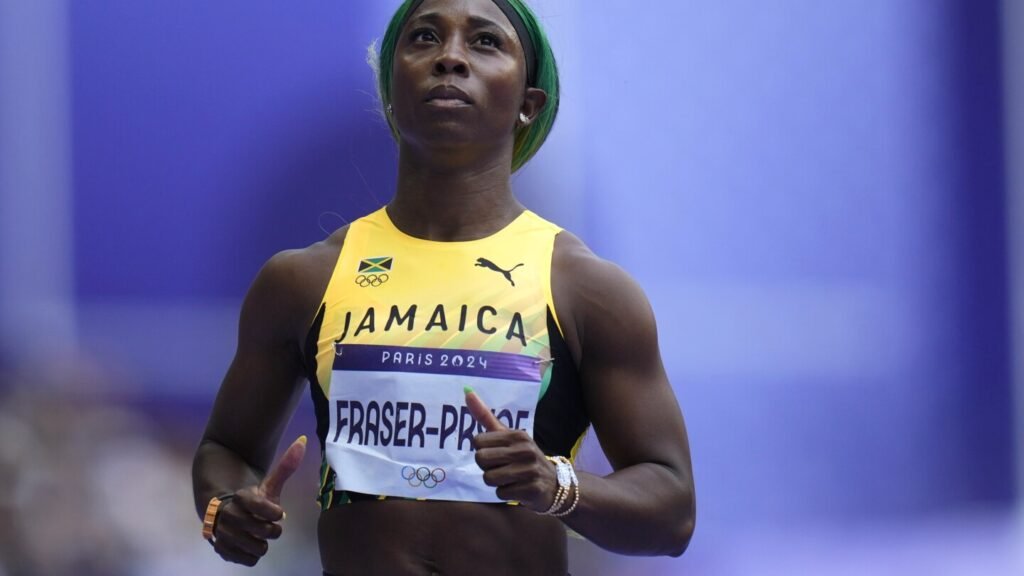
Paris Was Supposed to Be the End—and the Beginning
Going into the 2024 Games, Fraser-Pryce was clear: this would be her last Olympics. After four Olympic appearances and over 15 years at the top, she was preparing for her final curtain call.
She breezed through the first round in 10.92 seconds—clean, confident, focused. But behind the scenes, a storm was brewing.
On the day of her semifinal, when she arrived at Stade Annexe, she was told she couldn’t use the entrance gate she had used the day before. No explanation. No flexibility.
She waited 30 minutes while they “made calls.” She watched a bus of athletes pull up. She felt the weight of onlookers’ eyes. Then came the walk—a long, energy-draining trek around the stadium with her heavy bag in hand.
For a sprinter, rhythm is everything. She had none. Her routine was thrown off. She missed critical warm-up time. Her body cramped. Her mind spiraled.
“I felt I could see it in front of me—and it was ripped out of my hands,” she told Marie Claire.
“I’m a warrior. I’m a fighter. I wanted to do it for my country. But I had to ask, what’s right for me?”
In the end, she made the unthinkable decision: she would not run.
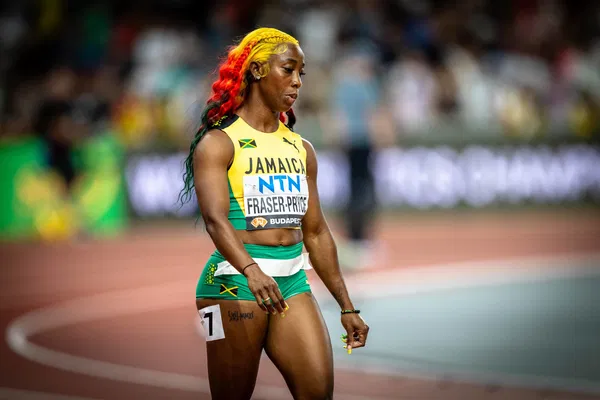
The Pain Behind the Power
Back at her Airbnb, her son looked up at her and asked, “Mommy, why didn’t you run?”
And that’s when the tears came.
“That was the hardest moment. I had no words,” she said. “I didn’t want him to see me as someone who gave up. But I also needed him to see that strength looks different sometimes.”
In the weeks that followed, she disappeared from the track. No interviews. No social media explanations. Just time with family in New York—museums, Legoland, frozen lemonade, and healing.
She didn’t owe the world an explanation. But in July, she gave us one anyway.
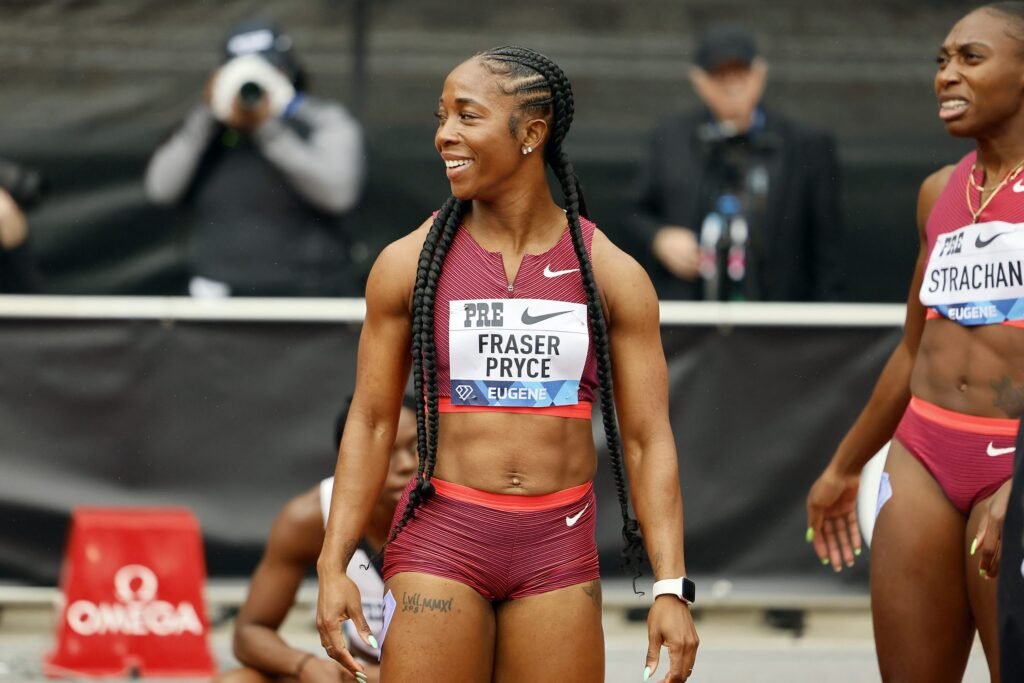
More Than an Athlete
Fraser-Pryce isn’t done running—but she’s running for something deeper now.
She still trains every morning. She still mentors young athletes. She still leads her Pocket Rocket Foundation, which has given nearly 100 scholarships to Jamaican students. She’s a businesswoman with her own haircare line (Afimi), and a mother who still sprints on school sports days—for fun, and to the awe of every parent watching.
She’s also preparing for what she calls her “final year—but not a farewell tour.”
“This time, it’s about me. I’m not chasing medals anymore. I’m chasing alignment,” she told Marie Claire.
“This was on my terms. I didn’t tap out because someone said I should.”
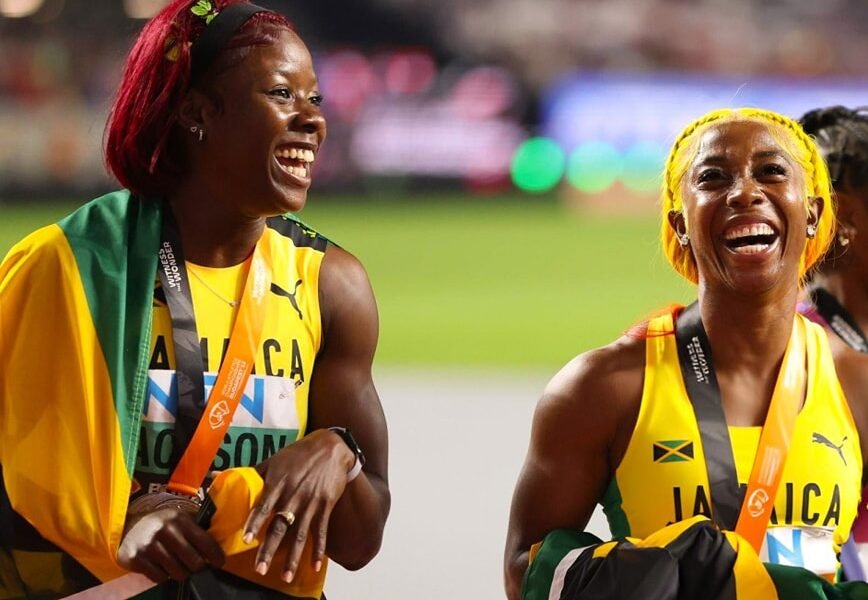
A Legacy That Can’t Be Measured in Medals
In her Marie Claire interview, Fraser-Pryce reflects not just on her career, but on what she wants to leave behind:
“I want my legacy to be the totality of who I am. The mom. The athlete. The entrepreneur. The philanthropist. I want it to be about impact.”
Shelly-Ann Fraser-Pryce didn’t run the Paris 2024 semi-final. But she walked boldly into a new conversation—one that challenges what strength looks like, especially for Black women in sport.
Her decision to withdraw wasn’t weakness. It was sovereignty. It was her claiming space in a system that often demands silence and sacrifice. It was her teaching her son—and the world—that greatness isn’t just about how fast you run. It’s about knowing when to stop, when to speak, and when to protect your spirit.
The Lane Was Empty. But She’s Still Winning.
At 37, Fraser-Pryce has defied time, injury, expectations, and doubt. She’s inspired generations of athletes—from the streets of Waterhouse to the world’s biggest stages. She’s shown that you can be fierce and feminine, fast and faithful, strong and soft.
And maybe, just maybe, her most powerful moment wasn’t at the finish line—but in the choice to not show up at the starting blocks, because she knew the race wasn’t aligned with who she is anymore.
Shelly-Ann Fraser-Pryce has nothing left to prove.
But somehow, she keeps proving more.
Read the full article here.
